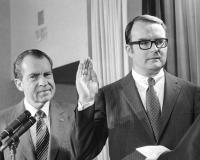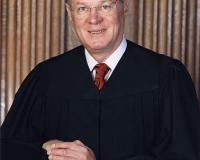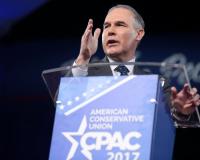
Vibrant Environment
Governance And Rule Of Law
All | Biodiversity | Climate Change and Sustainability | Environmental Justice | Governance and Rule of Law | Land Use and Natural Resources | Oceans and Coasts | Pollution Control

As pristine landscapes become a relic of the past, the icy tundras and taigas of the Arctic polar regions are becoming prized destinations for high-end adventure travelers who want to see the region before it’s gone forever. The perverse consequence of this kind of “last-chance” tourism in the Arctic is that, done carelessly, it will almost certainly accelerate the destruction and damage of the precise attractions that it so fetishizes, people and landscapes included.

Every year, the Environmental Law Institute in collaboration with Vanderbilt Law School publishes a special issue of the Environmental Law Reporter’s News & Analysis. The issue contains condensed versions of articles selected by Vanderbilt law students, in consultation with an expert Advisory Committee, ELI senior staff, and their professors, because they offer some of the year’s best legal and policy solutions to pressing environmental problems.

I met William D. Ruckelshaus a year after the Saturday Night Massacre, and 18 months after he left the U.S. Environmental Protection Agency (EPA) as its founding administrator. I was a reporter for the Daily Princetonian, and he was on campus to give a talk. I recognized that here was a true American hero. Nine years later, Ruckelshaus would return to EPA for more heroics: restoring the Agency to its original sense of idealism and high purpose.

On July 19, the U.S. Fish and Wildlife Service (FWS) and National Oceanic and Atmospheric Administration (NOAA) released their highly anticipated proposed changes to the rules implementing the Endangered Species Act (ESA). Enacted in 1973, the ESA is credited with saving iconic American species like the bald eagle and the grizzly bear. It is one of the hallmark pieces of legislation of the early environmental movement and the legislation for species conservation in the United States. While the public generally supports the Act, the ESA is notoriously controversial for corporations and agribusiness. Industries such as oil and gas, land development, and mining criticize the ESA as a costly barrier to project development. Supporters of the ESA highlight its role in preventing the extinction of species that are crucial to U.S. ecosystems.

On June 27, 2018, Justice Anthony Kennedy announced that he will retire from the U.S. Supreme Court on July 31, 2018. Kennedy, who was nominated by former President Ronald Reagan and confirmed in 1988, became a crucial swing vote on a variety of environmental issues during his tenure. On July 11, 2018, ELI hosted John Cruden, John Elwood, and Richard Lazarus at a Breaking News webinar to explore the influence Kennedy has had on environmental law and to discuss the implications of his retirement from the Court for the future of environmental law.

I’ve witnessed some tumultuous times throughout my professional journey, which has mostly involved the industrial sector. The current global political climate, industry takeovers, mergers, and portfolio rationalization, as well as companies vying over a competitive talent pool of leaders, has resulted in a fair amount of distraction and turbulence across all industry functions, including Environmental, Health & Safety (EHS). Observing these circumstances, how does an organization proactively manage EHS compliance? Below, I share some thoughts I’ve gathered over the years.

The Migratory Bird Treaty Act (MBTA) prohibits the taking and killing of migratory birds. But the statute is silent about indirect or unintentional taking or killing that occurs in connection with an otherwise lawful activity. Dueling DOI Solicitor’s Opinions issued by the Obama and Trump Administrations have only served to highlight the ambiguity in the MBTA’s requirements. In A Pendulum Seldom Stops in the Middle: Shifting Views on “Take” of Raptors and Other Migratory Birds, David Freudenthal (former Governor of Wyoming) and attorneys Steven P. Quarles and Rebecca Barho argue that congressional action ultimately is needed.

The neck-breaking growth of the Chinese economy since the late 1970s has alleviated hundreds of millions of people from poverty and is one of the biggest economic achievements that the world has ever seen. However, the amazing growth and all of its benefits came at terrible expense to the environment and ecosystems.

In March of last year, President Trump issued fossil-fuel friendly Executive Order No. 13783, Promoting Energy Independence and Economic Growth. Section 5 of this Order directed agencies to discontinue use of the “social cost of carbon” (SCC), a protocol developed under the Obama Administration to monetize the impacts of climate-related disasters and disruption.

Over the last year, the Trump Administration has launched an extensive regulatory rollback effort, which notably included Executive Order No. 13771 and its two-for-one provision. On May 16, ELI hosted a seminar, “The Burden of Unburdening: Administrative Law of Deregulation,” which examined this deregulatory shift.